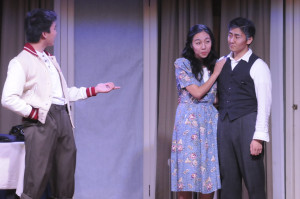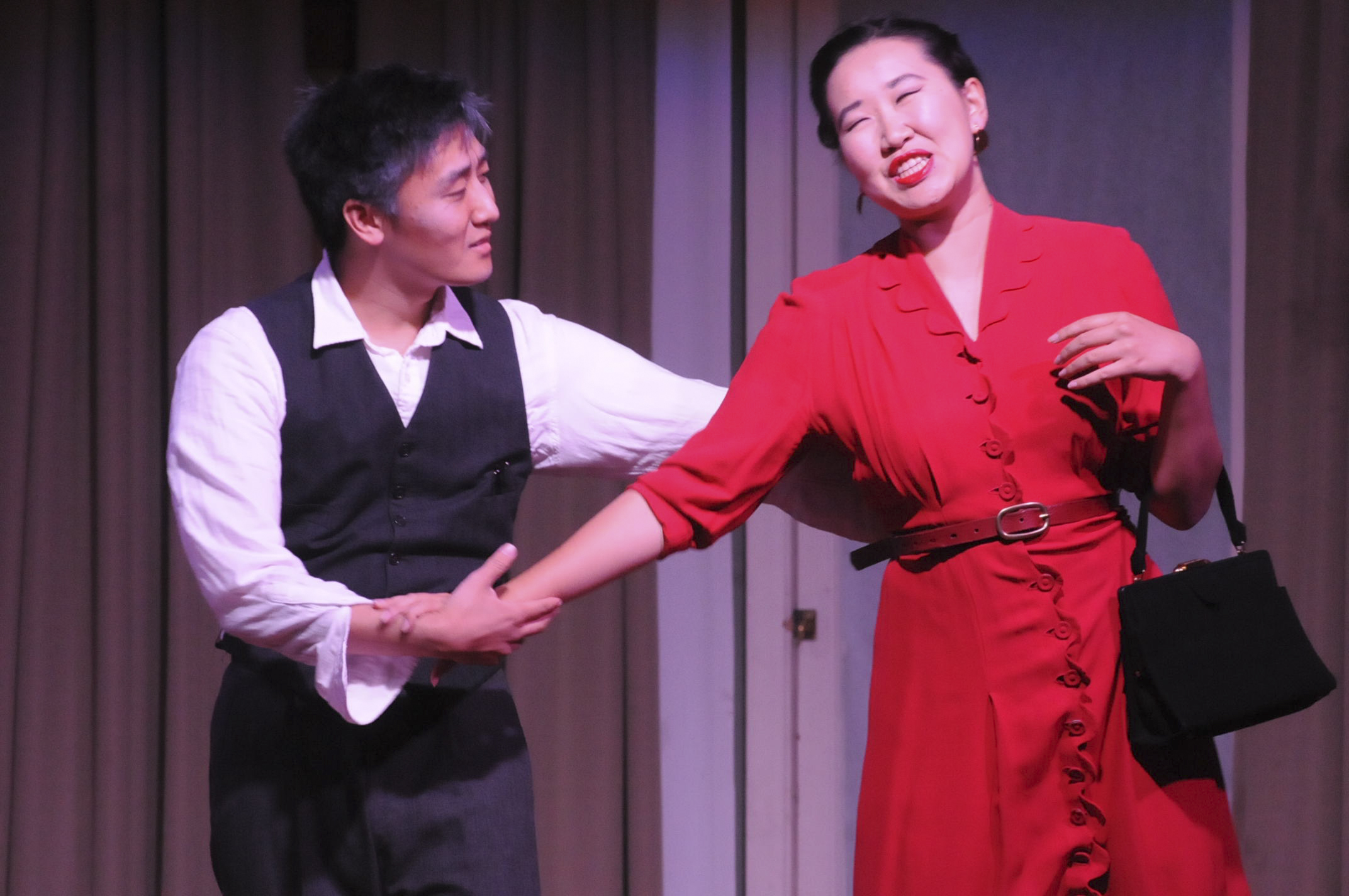This weekend, the Asian American Theater Project (AATP) will put on a production of “Death of a Salesman” — with a twist. Rather than relying on an all-white cast appropriate to the play’s 1949 composition, the AATP version has cast a largely Asian ensemble, an unorthodox decision framed by co-producer Ken Savage ‘14 as offering a distinctive take on the American classic.

According to Savage, AATP was inspired to put on the production because the group thought that the themes explored in Miller’s play were also relevant to the Asian American experience.
“Part of AATP’s mission is to look at all plays through an Asian and Asian American lens and see how each of these plays speak to our culture, our family values, the ideas and themes that matter most to us,” Savage said. “What does the American dream mean to an immigrant family?”
For Asia Chiao ‘15, AATP’s artistic director, being involved in the play allowed her to better grasp some of the issues concerning Asian American actors.
“Since coming to the U.S. for college, I’ve realized how many problems of representation, both underrepresentation and misrepresentation, there are in theater, particularly with regards to Asian Americans,” Chiao said.
Chiao, Savage and other members of the AATP board of directors made the decision to put on “Death of a Salesman” this quarter with a primarily Asian cast as a means of exploring some of these issues.
“We wanted to see how AATP could put a fresh spin on it, looking at the play in the context of an Asian American community,” Chiao said.
Dina Hassan ‘15, director of the play, suggested that Miller’s piece was chosen because of the ability of the topics addressed to transcend ethnic boundaries.
“The themes [in the play] relate to humanity and to us as Americans,” Hassan said. “It’s a classic American play, not a classic white American play.”
Hassan argued that such universalism extends beyond plot lines to the makeup of the cast itself.
“People can relate because they can see themselves in those shoes,” she said. “In AATP, we want to encourage Asian American participation in the theater because there’s a stigma that minority actors face. Some say, ‘You couldn’t play this role because it doesn’t pertain to your world.’ We all can relate to this play. The experiences are universal.”
By pushing the horizons of what is traditionally expected of such a performance, Hassan hopes to challenge the audience to embrace the unconventional.
“One of my goals for the play is to open the minds of the audience and allow them to see that the Asian American experience is not limited to what you see on TV or anything like that,” Hassan added. “It’s very expansive and can be related to quite easily.”
Chiao framed her goals for the play as inducing the audience to consider their beliefs concerning theater.
“I want people to think, ‘This is really interesting,’” Chiao said. “‘Why does it have to be played by an all-white cast? Why do we come in with these assumptions about ethnicity?’ This is a chance to see a production of ‘Death of a Salesman’ unlike anything before.”
Chiao and her fellow directors also aimed to prompt the Asian American theater community to embrace diversity in the types of roles they choose to take on.
“Productions like this — where we’re giving opportunities to Asian American actors, directors, artists, to give them a chance to work on projects that encourage people to think, reinterpret, evaluate — this is why I joined AATP at the end of last year and why I will continue to be a part of it,” Chiao said.
According to Savage, this production was many of the actors’ first forays into theater.
“We want to make sure they have an opportunity that they have never had,” Savage said. “Our goal is to make sure that everyone is enjoying themselves and feels supported and safe. A secondary goal I have is to really [make] sure this play sparks dialogue between the production, actors and the audience about what the American dream means, especially among minority groups.”
Despite their casting of a predominately Asian American ensemble, Hassan said that the production team has not had to make many changes to the script in order to accommodate an Asian American family.
“At first it was hard, because I was thinking about, how I can change this to make it work for an Asian American family,” Hassan said. “But we just needed to look at it from a different perspective … You don’t think, ‘I have to make this Asian.’ You think, ‘How is this relatable to the minority experience?’”
Catherine Zaw ‘15, the set designer, emphasized that she did not have to make too many changes for an Asian American family.
“The only changes I had to make were because of space constraints and tiny changes, like using a tea pot [instead of a pitcher],” Zaw, who is a Daily staffer, said. “I wanted a very minimalistic stage because I didn’t want it to be so personalized that it was clearly Asian. I wanted it to be contemporary to its time, but it could go in either direction about whose how it is. We didn’t put distinct things or cultural things in the play.”
Savage noted that the production’s leaders hadn’t realized how well the concept of an all-Asian family would work.
“The synergy between casting and the text itself has been wonderful,” he said. “This is something new that Stanford hasn’t seen before.”
Although Hassan said that her crew has not received much criticism from the Stanford community about changing the play’s traditional casting, she conceded that some people did not think it was a good idea.
“Yale did an all-black version of ‘Death of a Salesman’ and got so much flak about it, that it doesn’t reflect black history and the black experience in America,” Hassan said.
Still, Hassan and Savage concluded that the play’s experiences and references work in an Asian American context.
“Arthur Miller thought it would work, too, because [apparently] he brought the play to Beijing,” Hassan said. “[‘Death of a Salesman’] is very relatable.”
